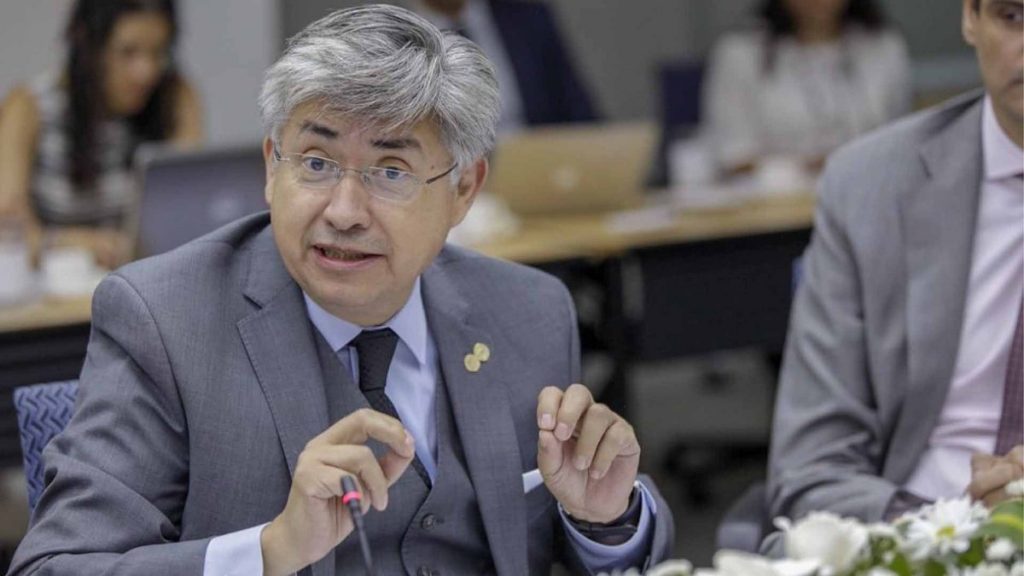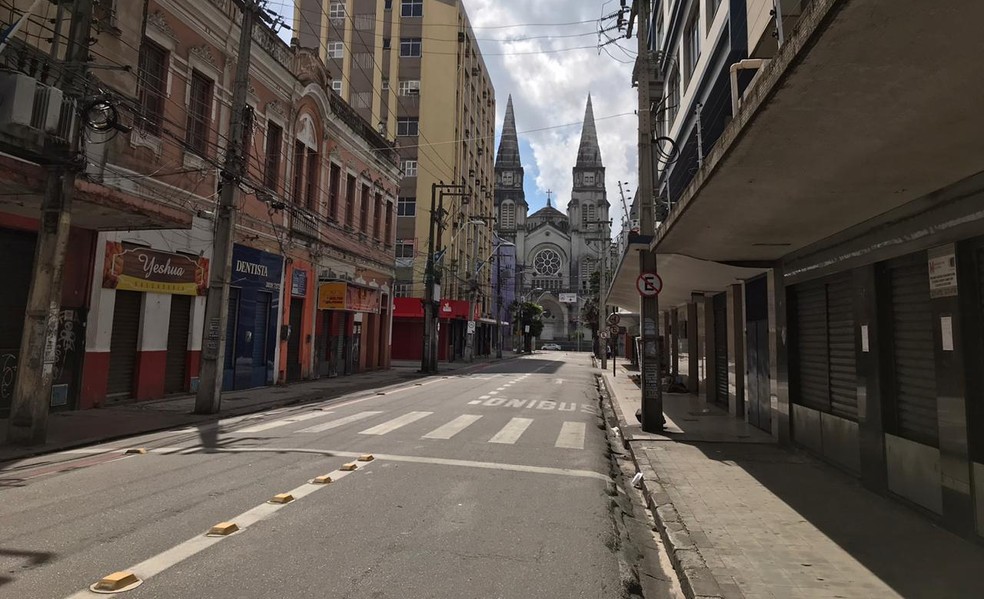RIO DE JANEIRO, BRAZIL – The Inter-American Commission on Human Rights (IACHR) of the Organization of American States (OAS) passed a resolution on April 10th expressing concern over respect for the most basic rights during the fight against the Coronavirus pandemic in the Americas.

“Every time policies are designed to safeguard the population’s right to health, these policies need to be based on a broad perspective of the whole range of human rights, assuming they are universal and indivisible,” explains Joel García Hernández, president of the IACHR.
“This situation is unprecedented in many ways, because we are living and focusing on human rights in entirely extraordinary and unknown conditions,” he adds.
Thus, the 22-page resolution includes 85 recommendations for the 35 states that are part of the international organization, to respect human rights when implementing protective measures. The responses to Covid-19 recommended by the World Health Organization (WHO) concern restricting one of the most basic rights, that of the free movement of people.
“Every measure implemented must be fully justified. These are measures that need to be proportional, necessary and temporary”, argues García.
In addition, the resolution addresses specificities of historically vulnerable groups that may now experience the worsening of their situations. “We have seen what risks women can face in this context, as well as indigenous peoples, the LGBTI population, Afro-descendants, prisoners, adolescent boys and girls…”, explains the president of the IACHR, to whom the main concern is that the pandemic may become “a pretext for greater limitation of rights” in the region.
Read below the main excerpts from the interview.
Question. Why is there a need to remind states to follow very basic human rights principles?
Answer. We start from the reality of a continent with very deep economic inequalities within our society. And we also live in a continent with high rates of widespread violence. We have also seen situations in the continent of restriction to civic space, freedom of expression and the right to information.
We start from a scenario of major human rights challenges. What concerns us is that the pandemic may present itself as a pretext for further limitation of rights. And secondly, we are concerned that some population groups that have been discriminated against or have been denied their rights now find themselves in a situation where their human dignity is deteriorating.
That is why it is important to remember what the basic rights list is, but the 85 recommendations take a particular interest in this population’s situation at this time of the pandemic.
Q. Could you provide an example?
A. A very specific example is prisoners. Over the past few years, the committee has made recommendations for states to stop using pre-trial detention. An average of 60 percent of people in prison systems are held in pre-trial detention.
Now, more than ever, we reiterate that states should seek alternative measures to pre-trial detention. We have insisted on this in the past as a way of reducing prison overpopulation. Today, more than ever, this number must be reduced. Otherwise, isolation will lead to contagion. Therefore, it is a way to remind states that they have not done enough to adopt alternative measures to pre-trial detention. And now they need to do that.
Q. Brazil has the third largest prison population in the world [there are over 700,000 people imprisoned], behind only the United States and China. Justice Minister Sérgio Moro has been making statements against any kind of alternative measure. He even said that, imprisoned and isolated, they would be more protected from the coronavirus.
A. The recommendation is not directed to a particular country, but to all the OAS states. In all of them there are very high prison isolation rates. We visited prisons in Brazil, Honduras, Nicaragua, Paraguay, El Salvador… And in all the prisons we found the same phenomenon.
Decongesting prisons, providing new vacancies and ensuring that there is no contagion inside them are already positive measures on their own. But it is also an opportunity to reflect more deeply and take more aggressive measures to reach alternative methods of punishment.

Q. Freedom of movement is among the most basic rights. How to restrict it?
A. International Human Rights Law provides for the possibility of restricting certain rights, such as freedom of movement itself. These restrictions must have well-established criteria, they must be proportionate to the intended purpose and they must be temporary in nature. These restrictions cannot be used as pretexts for restricting other rights.
The Inter-American Commission itself grants this option to establish states of exception in different ways to meet an emergency situation. In our continent, ten countries have embraced this type of state of calamity, of emergency, and are applying restrictions that need to be fully justified and follow certain parameters.
Q. How do you view the use of the police and other state repressive instruments to ensure that people do not walk on the streets?
A. The deployment of the police in such conditions must be subject to pre-established protocols, whereby the health emergency situation is primarily justified by people’s health and safety. And these protocols must prevent the use of force against people. We could then fall into situations of repression. A state, through its powers, can authorize the use of the police to monitor whether certain measures are being complied with, but always subject to restrictions and controls to prevent police abuse.
Q. There is a debate, quite current in Brazil, concerning economics and the need to relax restrictions so that people can work and sustain themselves. How can we ensure people’s health and livelihood simultaneously?
A. This is a very important topic. It is stated in recommendation number 5 in our resolution: “It is important to take measures that ensure income and livelihood for all working people so that they are equally able to comply with all protection and containment measures”. This is a key recommendation to all Member States, because only a privileged group of people may be confined to their homes.
In our continent there is a large number of people in the informal economy who live off their livelihoods on a daily basis, and who can therefore comply with the confinement measures. Today, the WHO’s main recommendation is confinement. And therefore the State has a special responsibility to assist people in having the economic means to comply with these protective measures.
Q. In the United States, blacks are the main victims of the coronavirus. In Brazil, blacks are the majority of the population and are subject to structural and historical racism. What recommendations does the IACHR provide to protect this population?
A. In the United States, the death of the African-American population is very much linked to poverty levels. It is precisely one of the instances of economic disparity in all countries in the continent.
But in the case of the African descendant population, the Commission is particularly concerned, lest people be discriminated against on the basis of their ethnic-racial origin or that they be racially profiled in the adoption of measures. We are concerned that, in a pattern of pre-existing discrimination, now under the tension generated by this crisis, there will be even greater discrimination against these people. This is well documented in recommendations 72 to 75.
We are equally very concerned about the situation of indigenous peoples, particularly those populations in voluntary isolation in the Amazon region. The emergence of Covid-19 may threaten the very survival of a people.
Q. As a result of the restrictive measures, many women are finding themselves confined inside the home with abusers. On the other hand, women who lead families are even more economically vulnerable. What recommendations does the IACHR offer to this group?
A. We are documenting the increase in cases of gender-based violence, which can occur precisely as a result of the confinement conditions that people find themselves in. We have just published a press release in which we provide some instances of reports of domestic violence during the past week.
In the recommendations from 50 to 55 of our resolution, we also address the role women are playing during the pandemic within families. They have a double burden, particularly in single-parent families, where single mothers need to take care of their children and provide sustenance at home.
Q. How do you view the performance of different countries? Is it possible to group them according to their way of operation?
A. It is difficult to make this breakdown. The pandemic has affected countries in different ways and there have been different and distinct responses. It is very difficult to qualify each of them. Some countries have very complex structures, like Brazil. Not only because of their continental dimension, but also because of the size of their population and their federal structure, in which we saw different responses from municipalities, states and the Federal Government.
What we can take as an overview are two things. First, to recognize that all countries are taking measures to respond to the emergency. Second, we view the case of Nicaragua as a concern, the only country in the region where activities are going on as usual without quarantining, or distancing. It is the only country that differs from the remainder of the continent. What is the Commission’s recommendation? Very simple: follow the guidelines established by the World Health Organization, based on science. This is our call.
Q. Public health structures are very different in each country. Are Latin and North America prepared to face the pandemic?
A. This is one of the issues where the economic gap between and within countries is most evident. This is a pandemic that is testing the health systems. This is a health emergency that will first force the health systems to be immediately reinforced.
We are concerned about countries in which there are very poor health structures that are unable to cope with the extent of this crisis. Venezuela is particularly worrying because of the humanitarian crisis in recent years, which is preventing the country from obtaining the sanitary structures, medical and hospital resources available.
When the pandemic is over and we move into a second stage, I believe there will be many lessons learned about how the health systems have and have not worked.
We’ve just made a visit to Chile, and one of the issues the population conveyed to us was the concern for a universal health system. Chile and all countries are taking measures to contain the pandemic with the health system they have today. But this is still a long way off and could serve as a reference for improving the system.
Q. Many experts bet that there will be one world before, and another after the pandemic, that it will change the world. In addition to reforming health systems, what are the opportunities for the region? What structural impacts can it have in the long term?
A. The main lesson should be to address the structural causes of poverty and extreme poverty in countries. It will be closing the economic gaps existing within countries and the gaps in the economic development of peoples.
Source: El País

